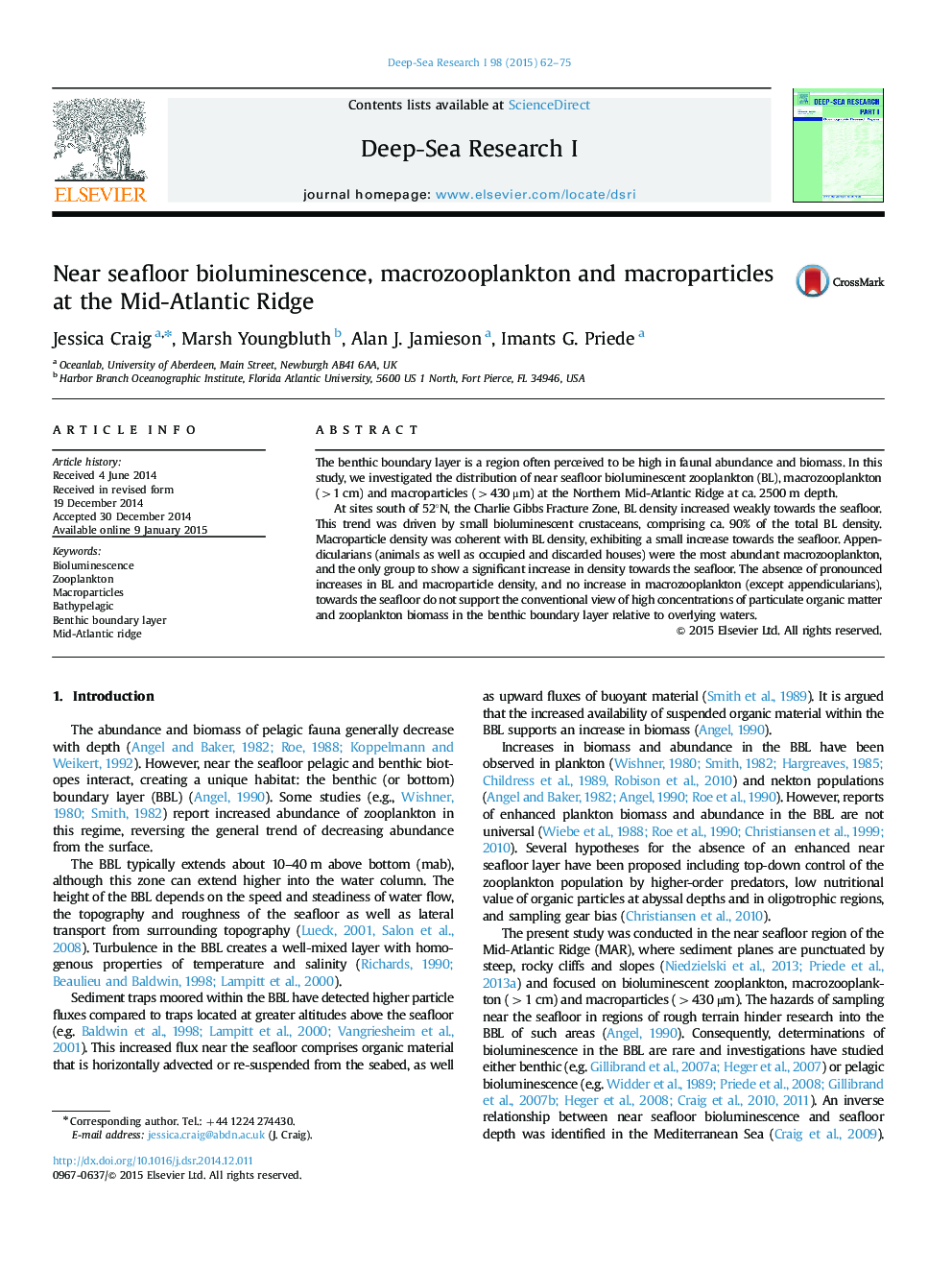| Article ID | Journal | Published Year | Pages | File Type |
|---|---|---|---|---|
| 6383627 | Deep Sea Research Part I: Oceanographic Research Papers | 2015 | 14 Pages |
Abstract
At sites south of 52°N, the Charlie Gibbs Fracture Zone, BL density increased weakly towards the seafloor. This trend was driven by small bioluminescent crustaceans, comprising ca. 90% of the total BL density. Macroparticle density was coherent with BL density, exhibiting a small increase towards the seafloor. Appendicularians (animals as well as occupied and discarded houses) were the most abundant macrozooplankton, and the only group to show a significant increase in density towards the seafloor. The absence of pronounced increases in BL and macroparticle density, and no increase in macrozooplankton (except appendicularians), towards the seafloor do not support the conventional view of high concentrations of particulate organic matter and zooplankton biomass in the benthic boundary layer relative to overlying waters.
Keywords
Related Topics
Physical Sciences and Engineering
Earth and Planetary Sciences
Geology
Authors
Jessica Craig, Marsh Youngbluth, Alan J. Jamieson, Imants G. Priede,
